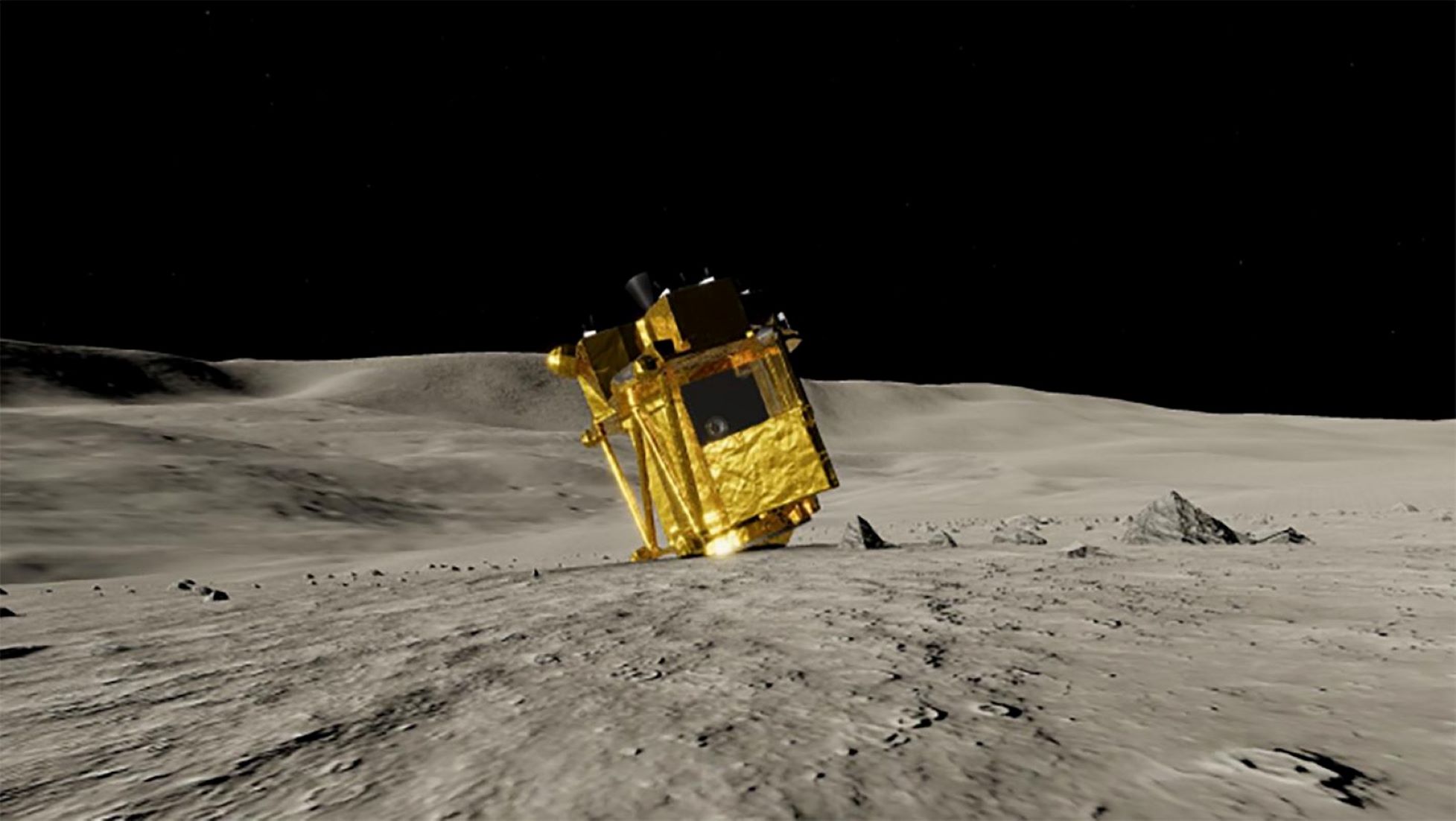TOKYO, Jan 29 (NNN-NHK) – Japan’s lunar probe, which was switched off, after its moon touchdown earlier, as its solar cells failed to generate electricity from the sun, has started functioning, the country’s space agency said, today.
It was believed that the solar panels of the Smart Lander for Investigating Moon, or SLIM, are now working, said the Japan Aerospace Exploration Agency (JAXA), adding that, it has been communicating with the lander since Sunday night.
“Communication with SLIM was successfully established last night, and operations resumed!” The JAXA posted on its official social network account for the lunar probe this morning.
According to the JAXA, the lander has also resumed exploration of the moon’s surface, with scientific observations immediately starting with the Multi-Band Camara on board. A picture showing a rock named “toy poodle” observed near the probe was posted online.
SLIM, dubbed the “moon sniper,” landed on the moon at 12:20 a.m. local time (0320 GMT) on Jan 20, making Japan the fifth country in the world to have landed a spacecraft on the moon.
As its solar cells were not generating electricity, the lander was switched off at 2:57 a.m. on Jan 22, after working on backup batteries.
The small probe about 2.4 metres tall and weighing about 200 kg, excluding fuel, is designed to test technology for conducting pinpoint landings on the surface of gravitational bodies, with an unprecedented precision of less than 100 metres from intended targets, as opposed to conventional landers that often have an accuracy of within several kilometers, according to the JAXA.
The rocket carrying SLIM was launched on Sept 7, from the Tanegashima Space Centre in south-western Japan, in the country’s third attempt at a lunar landing.– NNN-NHK





